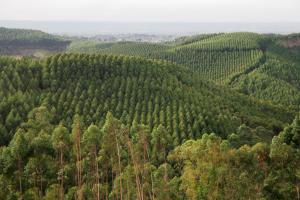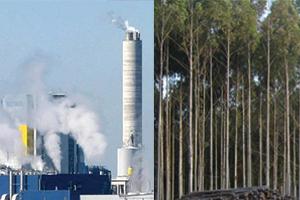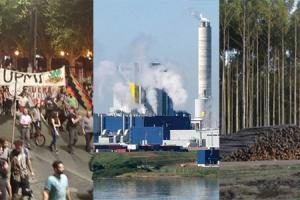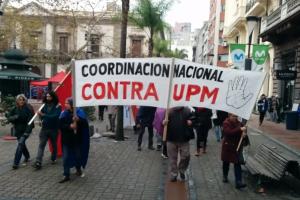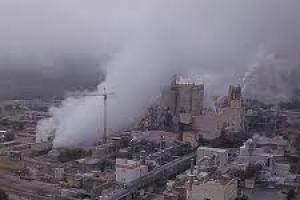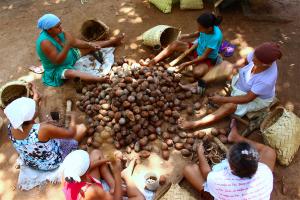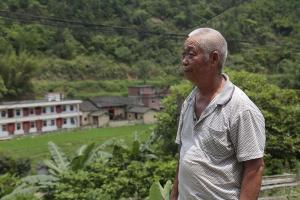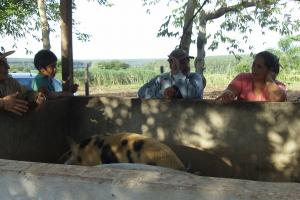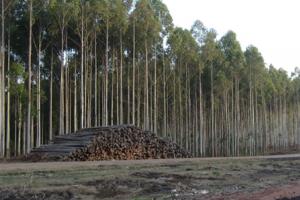Pulp and Paper
Large-scale tree monocultures to produce pulp and paper, along with the infrastructure and pulp mills that come with these plantations, have been expanding onto communities’ fertile lands. They have destroyed forests and grasslands, especially in Latin America, Asia and Southern Africa. The species used are fast-growing and not native to these countries. They include varieties of eucalyptus, acacia and pine trees.
After more than 50 years of struggle by peasant communities who have faced all kinds of environmental and social destruction, the highest court of Cauca Valley has ruled against the industrial plantation company, Smurfit Kappa Cartón Colombia.
Adhere to this letter to denounce the greenwashing of the Finnish multinational UPM, which is trying to install a new pulp mill and expand the monoculture tree plantations in Uruguay.
The construction of the Suzano Pulp and Paper mill—along with nearby highways, the constant transport of wood, and the massive influx of workers—has brought a lot of devastation to communities. This is the testimony of an activist who is fighting for the territory.
As a condition to install its second pulp mill, the company UPM demanded that the Uruguayan state build a new railroad from the site where UPM plans to locate its mill to the port. The government would cover the costs of these infrastructure projects at the service of UPM.
Over the last ten years, through organization and struggle, families in northeast Argentina have managed to recover land monopolized by multinational corporation Arauco. Now, they are growing food there.
In 2017, the Finnish company UPM signed a contract with the Uruguayan government to establish a third mega pulp mill. The project is subject to exorbitant conditions imposed by the multinational.
